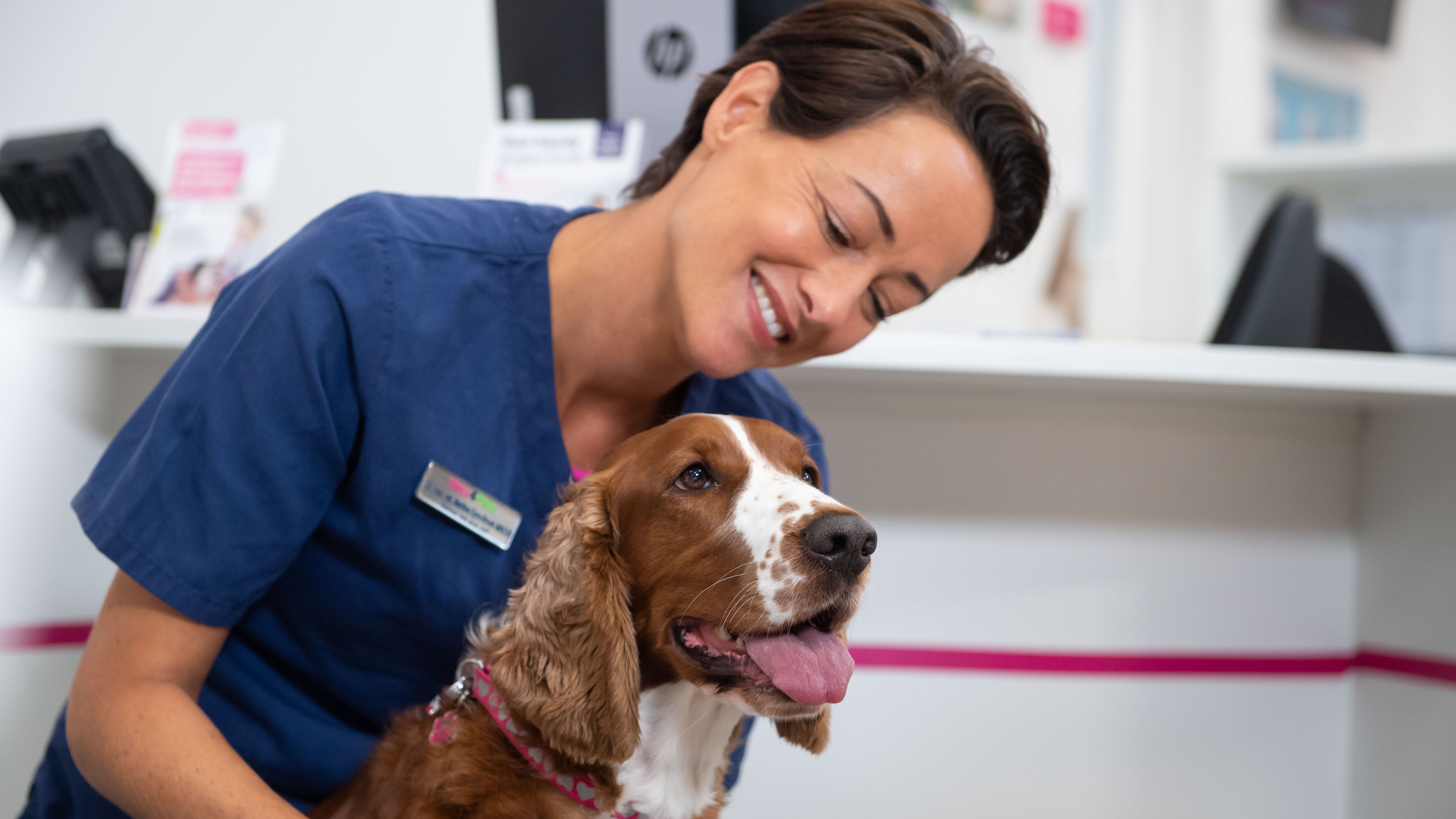
Whipworms in Dogs
Anecdotally, older dogs are more at risk of having a whipworm burden than younger dogs.
Whipworms are blood sucking intestinal worms. Small and difficult to spot, in large enough numbers they can suck enough blood to cause serious anaemia, especially in puppies. Whipworm infection is rare in the UK.
For other pet parasites, have a look at our dedicated page!
More about whipworms
Whipworms, of the species Trichuris vulpis, are endemic to the UK and only infect canines. Adult whipworms live in the large intestine, and they attach to the gut wall by burrowing their heads (the ‘handle’ of the whip shape) into the gut lining.
Whipworms reach a maximum of 2-3 inches in length and reproduce by making eggs in their tail section. These eggs are very hardy, and can survive a wide range of environmental conditions – some reports claim they can survive in the soil for up to seven years! Dogs are infected by ingesting these eggs after they have developed enough to contain infective larvae.
Anecdotally, older dogs are more at risk of having a whipworm burden than younger dogs.
Many dogs who have whipworms do not show any signs at all, however serious numbers may cause:
- Bloody diarrhoea
- Anaemia (low blood levels)
- Dehydration
- Tiredness
If your dog is experiencing any of these signs then you should make an appointment with your local Vets4Pets as soon as possible.
Thankfully, although you can’t stop your dog being exposed to whipworms, there are options for preventing an infestation developing.
- Regular worming treatments. Worming treatments usually come in the form of tablets or spot-ons, and may manage a range of parasites including whipworms. The best parasite protocol for your dog will depend on you, your dog, your lifestyle and even the season, and your vet can help you decide which regime works best for you. However you choose to manage worms in your dog, make sure to speak to a vet about the best anti-parasitics on offer, as many over the counter treatments have poor efficacy.
- Clean up after your dog quickly. This will help prevent further spread of whipworms.
If you think your dog might have a whipworm infection, the best thing to do is to go to your vet. They can do a full physical examination, and check your dog over from nose to tail! If there is a risk your dog may have worms, your vet will prescribe a worming treatment suitable for your pet, which should eliminate the worms. In serious cases your vet may also need to give other supportive treatment. They can also help you plan a worm prevention plan going forward too, to make sure your dog stays protected.
If there is any doubt, your vet may recommend a faecal test. This will look for evidence of worms, such as eggs or segments, and may also look for bacteria within the faeces.
As whipworms are suited to canine hosts, infection of people is very rare but has been documented. Cases are so infrequent, however, that the risk of infection is very small.
If you are concerned you have been exposed to whipworms, please contact your local healthcare provider.
Health Plans to keep your dog healthy
At Vets4Pets we offer a range of Health Plans that make essential routine treatments more affordable. You'll save money on things like annual vaccinations, flea and worm treatment and routine health check-ups.

Dog Advice
Read more of our expert dog advice to keep your dog happy and healthy.
